Dental fillings are a form of restoration used to treat cavities. Cavities are caused by tooth decay. If your dentist tells you it’s time for a filling, it’s important to set up an appointment as soon as possible. When decay is not treated early cavities can become deeper, leading to pain as well as risk for abscess and the need for a more costly root canal. If you aren’t sure about getting a filling, here we explain why it is important to act fast, as well as the pros and cons of different types of dental fillings available.
What Is A Filling?
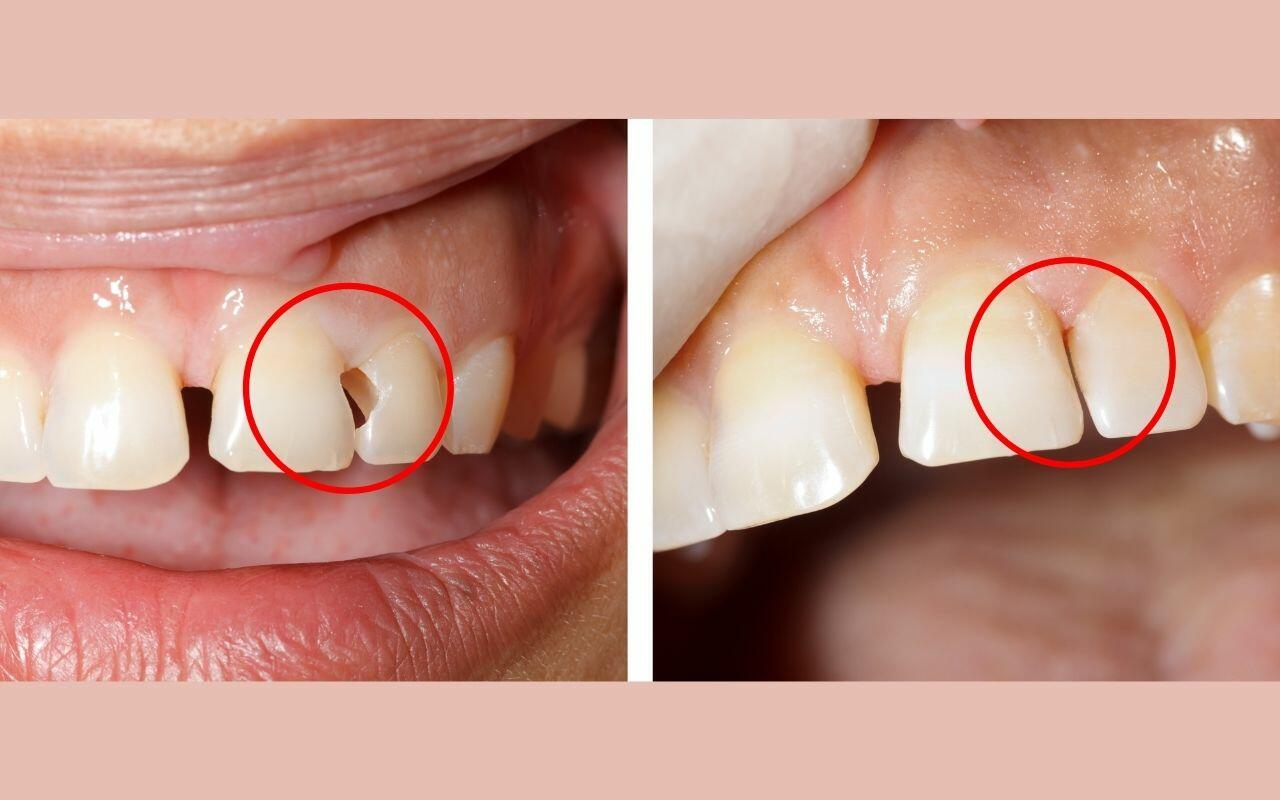
A dental filling is a restorative dental treatment used to repair tooth decay, fractures, or cracked or broken teeth. Fillings address minor decay and fractures but aren’t suitable for larger cavities or severe damage. If you experience pain, difficulty chewing, or tooth sensitivity you could have a cavity requiring a filling.
When Is A Filling Required?
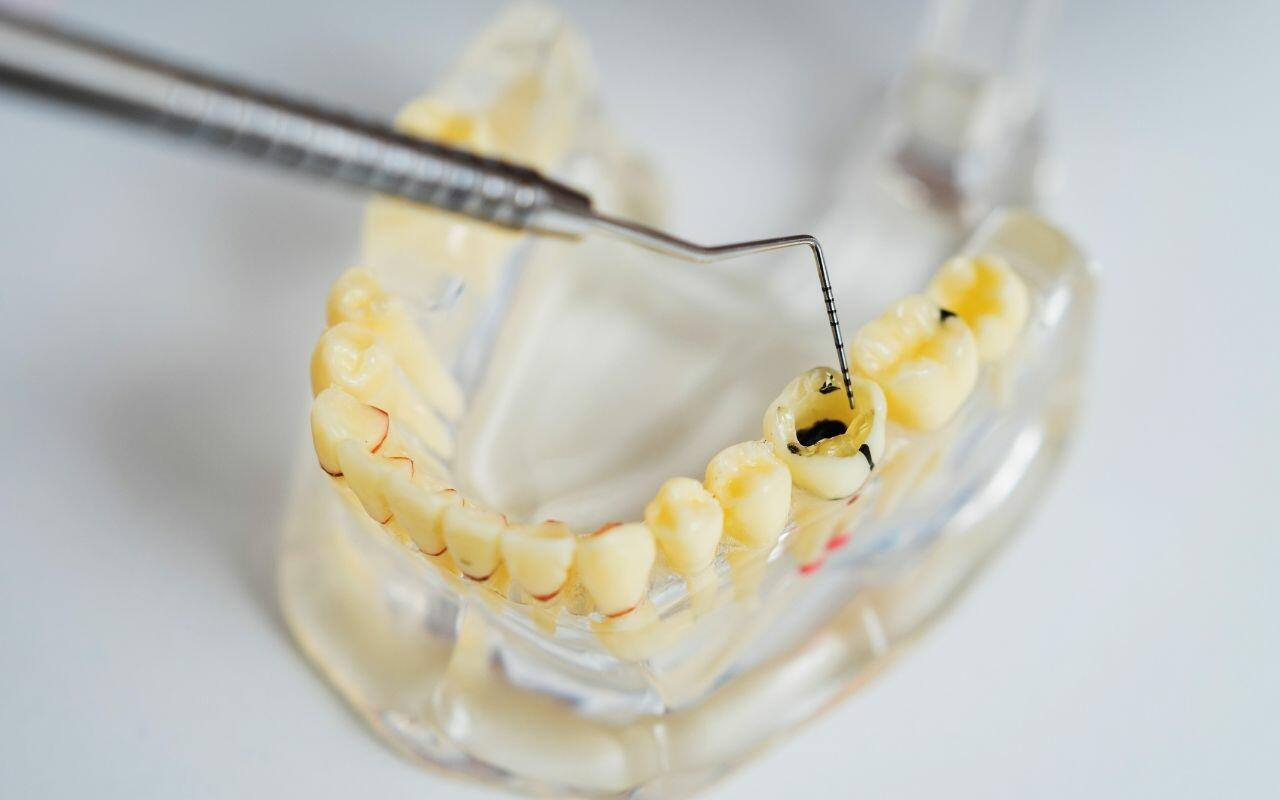
We will use a few factors to determine when a dental filling is the right treatment for you:
- Cavity size: Size determines when a filling will suffice, or if you might need a crown instead. Bigger, deeper cavities often require a dental crown to maintain the integrity of your tooth.
- Tooth condition: Along the same lines as above, the condition of your tooth is also considered. For example, if this is a cavity that has been restored several times already, the tooth might not withstand the process again. In this case, a crown is required. As well, if your tooth structure has been weakened by the cavity, a crown will be required. If there is an infection that has reached your pulp, we’ll need to perform a root canal to remove the infection, then fill it and often provide further protection with a crown.
We will perform a thorough assessment to decide if a filling will do or you need something more extensive to save your tooth. The key is to save your tooth from further decay as effectively as possible.
How Are Dental Fillings Performed?

When performing filling treatments, we generally follow these steps:
- Localized anesthesia numbs the area to be filled
- The decayed area is removed using a drill or laser depending on the extent of the decay
- The area is probed to test if all the decay has been efficiently removed
- All the residual traces of decay or debris are cleaned to prepare the tooth for filling
- In some cases, a liner made of glass ionomer or composite resin is slipped over the area to protect the nerve if the decay on your tooth is near the root
- The filling material is applied
- Any excess material is removed
- The restoration is polished, and the surface is evened out to ensure a comfortable bite
Of course, it is important to decide what type of filling you prefer before the work begins.
Pros And Cons Of Different Types Of Dental Fillings
There are generally three different types of dental fillings we offer:
Composite Fillings
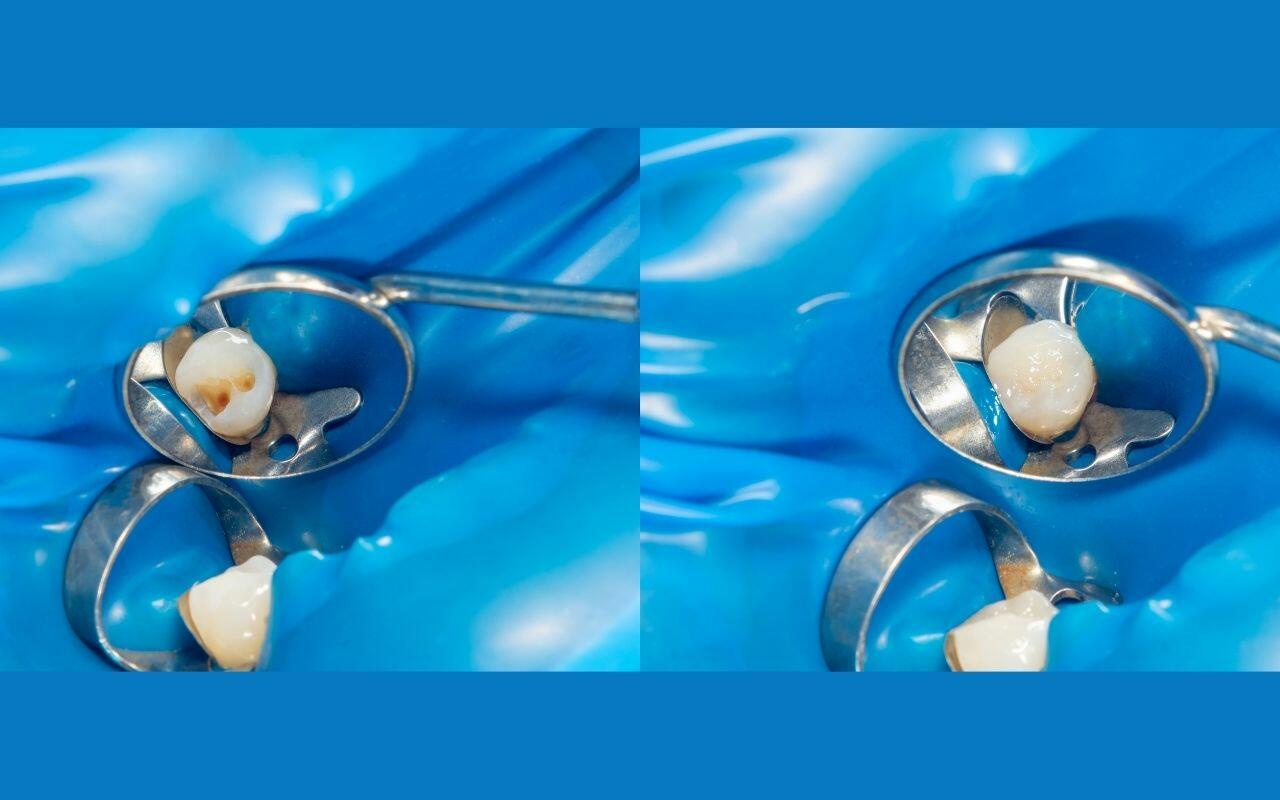
Composite fillings are usually preferred by our patients because they are the same colour as your natural teeth. The composite is made of glass or quartz in resin. We recommend composite fillings if you are not too keen on serious dental work that involves drilling. Since the composites are bonded into place the process is less invasive.
Pros of composite fillings include:
- They don’t require a lot of drilling, so very little of the tooth structure is removed
- The composite hardens in a matter of seconds, unlike other types that may take days to harden
- Composite fillings can be easily repaired if they are damaged
- They camouflage the filling for a nice, unified look when you laugh or yawn
Cons of composite fillings:
- It takes longer to place them than other options
- They are more expensive than silver fillings
- You need to follow a meticulous cleaning regime to maintain them properly
- There can be “micro-leakage” and secondary caries associated with composite fillings
Crowns
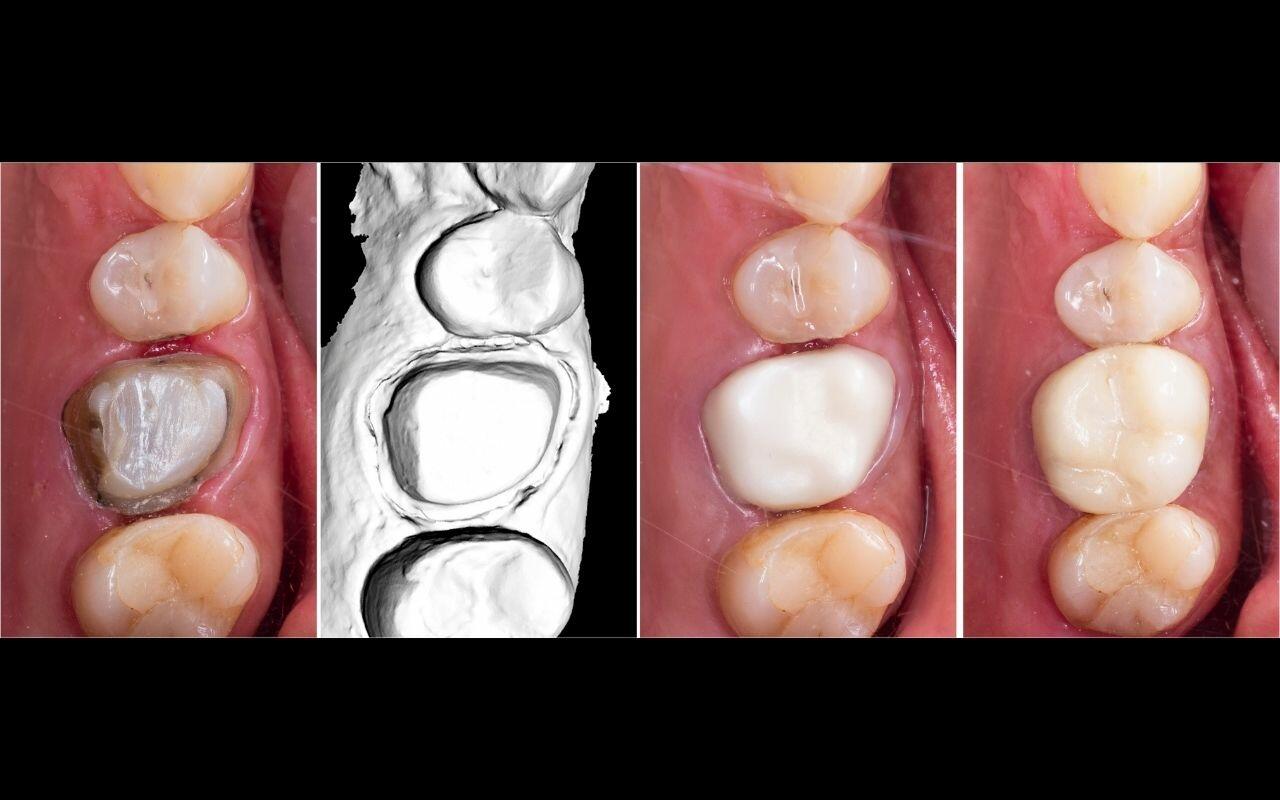
Crowns are made of porcelain, ceramic, or other glass-like materials providing a very natural look. When your tooth needs a little more protection due to more severe damage, a crown is required.
Pros of crowns:
- Crown colour matches well with your teeth
- Crowns are very durable and resistant
Cons of crowns:
- They are costly compared to other types of fillings
Dental Amalgam
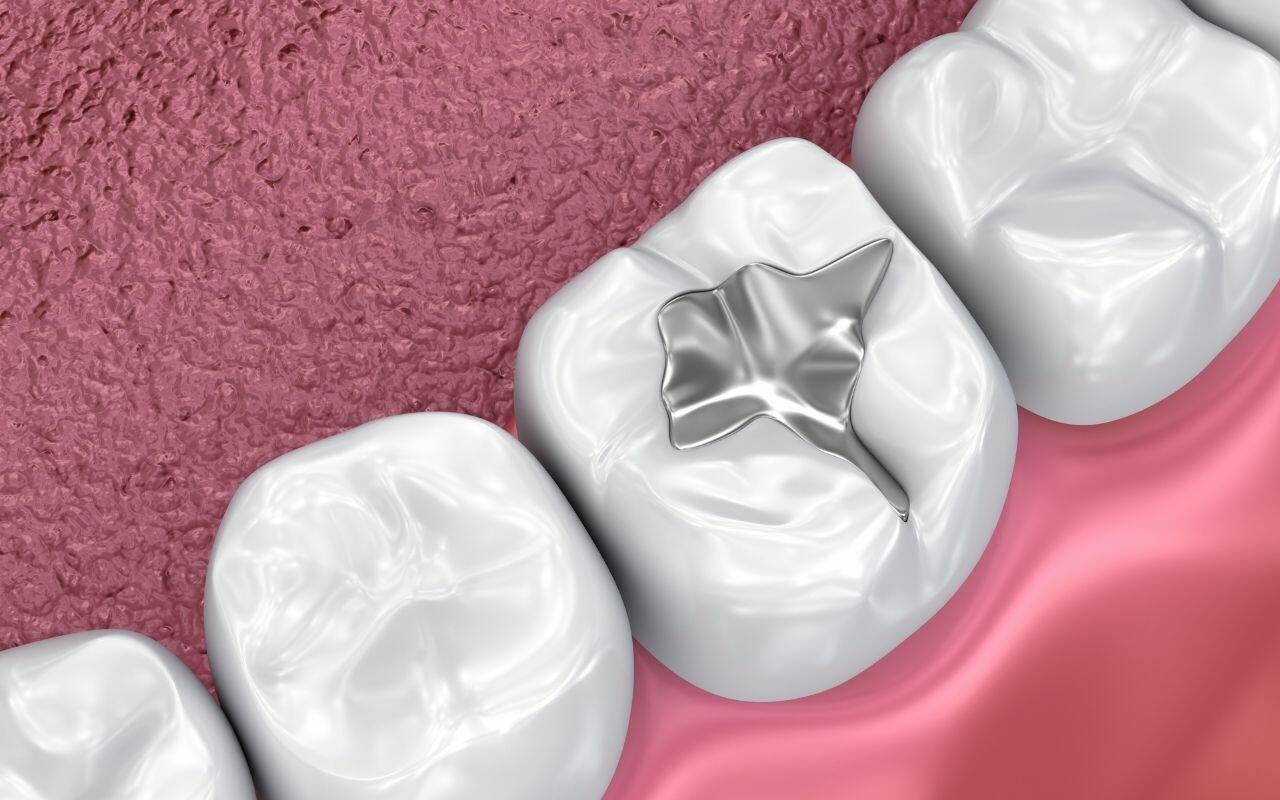
Also known as silver fillings, dental amalgams were the go-to treatment before composite arrived on the scene. They are produced using a mixture of metals such as copper, silver, mercury and tin, making them a lot more noticeable than composite fillings. However, they do serve their purpose and provide a strong material to withstand day-to-day use of your teeth.
Pros of dental amalgams:
- They are very durable and strong, so they last longer and put up with a lot of daily wear and tear
- They are the most affordable choice
- They help prevent future cavities making them a good choice if you are prone to cavities
- They allow you to chew without worry because they are better at withstanding pressure, wear, and tear
Cons of dental amalgams:
- Amalgam fillings can result in teeth discolouration
- They are very noticeable, so they are better for back teeth
- They can lead to teeth sensitivity because the metal reacts to hot and cold temperatures in your mouth
- Amalgam fillings can stain your teeth
Each of the different types of dental fillings removes decay, protects your tooth, and helps reduce the risk for further decay issues such as infection. We can help you make the best choice for your situation.
What Happens If I Decide Not To Get A Filling?

If you decide against getting a filling, you are setting yourself up for disaster. Cavities don’t go away. They only get worse. So, if you don’t get a filling done you are looking at a far more serious situation, including infection. The end result is either the need for a costly root canal and crown, or total tooth loss. Cavities have a very damaging effect and can become very painful. They can also make you sick if the infection spreads throughout your bloodstream. To avoid further damage, illness, and costs, we always advise patients to get the cavity filled as soon as possible.
If you think you have a cavity or have tooth pain of any kind, call us today to learn about the different types of dental fillings available at 905-775-5307 or click here to request an appointment.
